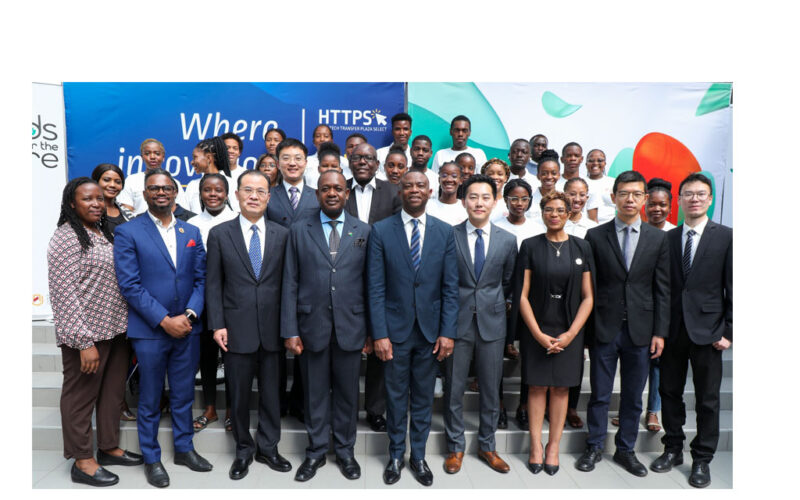Martin Endjala
Namibia and Huawei Telecommunication Technologies last week Friday, launched the Namibia Seeds for the Future 2023 program, an innovative initiative by Huawei to identify and develop talent in the Information Communications Technology (ICT) sector.
The Seeds for the Future program is a global flagship corporate social responsibility program whose main aim is to cultivate local ICT professionals in the countries where it is operating.
This is done by offering undergraduate students training on ICT technologies and solutions and a first-hand working experience of the operations of the dynamic telecommunications company and Chinese culture.
The program is said to cultivate local ICT talent, promote knowledge transfer and improve students’ interest and understanding of the telecommunication industry.
Speaking at the launch in Windhoek at the Namibia University of Science and Technology (NUST), Information and Communication Technology Minister, Peya Mushelenga, said the Seeds for the Future program is in line with the ministry’s digitization strategy and mission to provide an efficient national IT delivery framework and maintain national cyber security.
He reiterates that the program helps cultivate and pool together ICT professionals and students, thus boosting ICT industry growth, driving the development of different sectors and contributing to lower unemployment rates over the long term.
The minister further informed that Huawei Technologies has developed several frameworks that seek to strengthen their relationships with Universities and students and help promote ICT talent development.
The frameworks include the Huawei ICT Academy, Huawei ICT Talent Ecosystem, and Huawei Seeds for the Future programs.
Furthermore, he emphasized that Institutions of Higher Learning are partnering with Huawei to become Huawei ICT Academies, and offer professional ICT Certifications in courses such as Routing and Switching, Cloud Computing, Artificial Intelligence, Internet of Things and many more.
Huawei trains instructors nominated by each institution, who upon completion of the training become certified trainers, licensed to offer the Huawei certification programs.
In the same vein, the Minister underpinned the importance of Information and communications technology, maintaining that ICTs are fundamental pillars for inclusive, sustainable social and economic development.
Moreover, in the quest to become an advanced digitally propelled nation by the year 2030, Namibia has developed an ambitious ICT blueprint that will enable it to fully utilize technology and innovation to turn around its economy.
“Over the last two decades, we have also developed a viable Information Communication Technology infrastructure to reinforce robust economic development sustainably. Namibia has built thousands of base stations, including hundreds of 4G base stations. Huawei Technologies, in partnership with the Government and other players, has contributed immensely to this modern ICT revolution. For that we are grateful,” said Mushelenga.
The minister expressed concern that while the ICT industry is growing and technological innovations are advancing, the low investment in ICT technologies and the lack of a sufficient number of qualified ICT professionals pose the greatest obstacles to expanding the ICT industry in Namibia.




